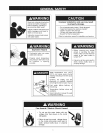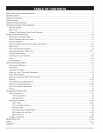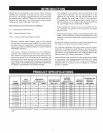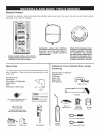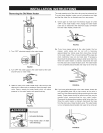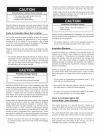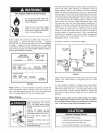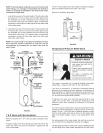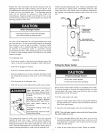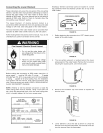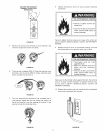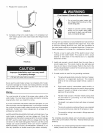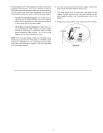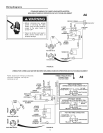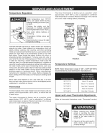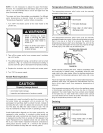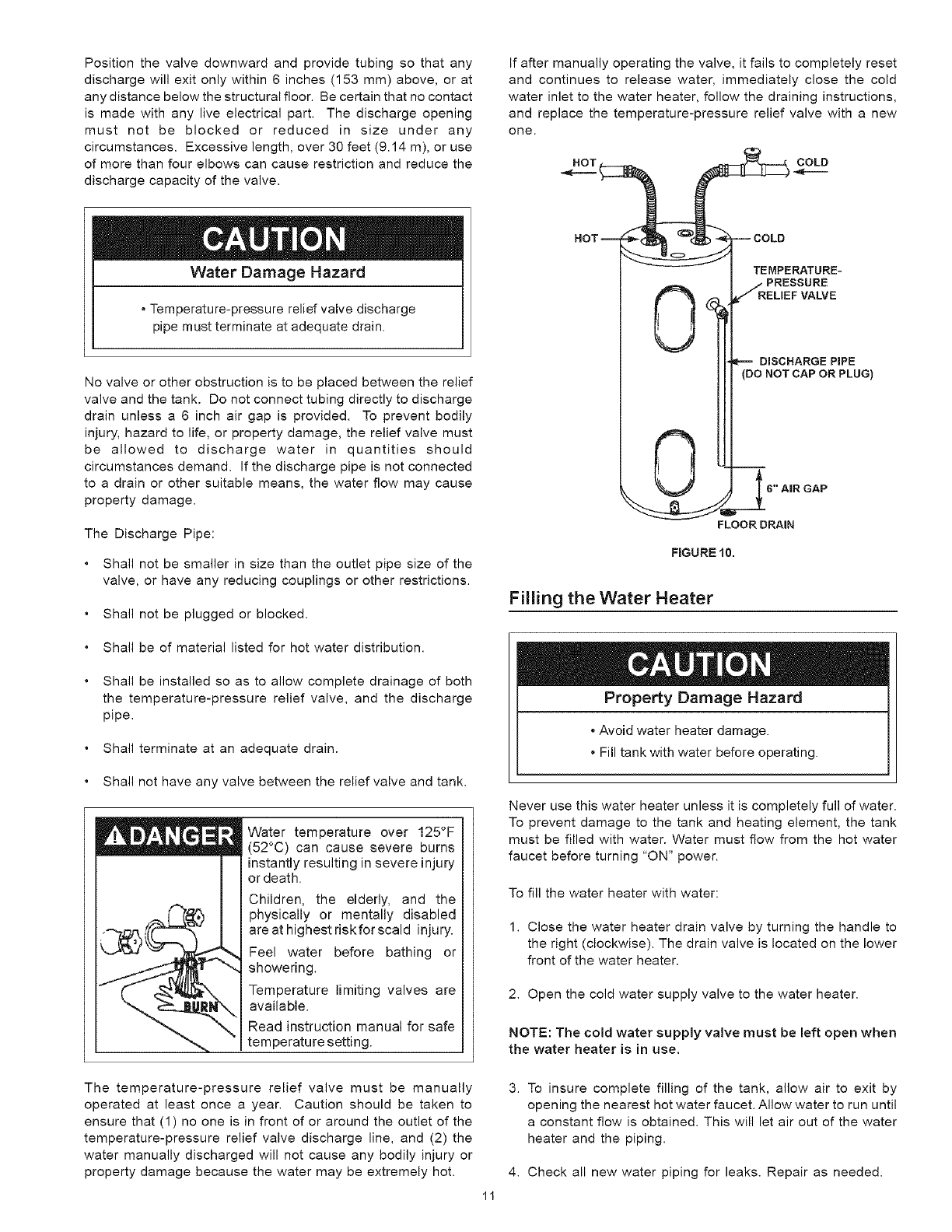
Positionthevalvedownwardandprovidetubingsothatany
dischargewillexitonlywithin6inches(153mm)above,orat
anydistancebelowthestructuralfloor.Becertainthatnocontact
ismadewithanyliveelectricalpart.Thedischargeopening
must not be blockedor reducedin size underany
circumstances.Excessivelength,over30feet(9.14m),oruse
ofmorethanfourelbowscancauserestrictionandreducethe
dischargecapacityofthevalve.
Ifaftermanuallyoperatingthevalve,itfailstocompletelyreset
andcontinuesto releasewater,immediatelyclosethecold
waterinlettothewaterheater,followthedraininginstructions,
andreplacethetemperature-pressurereliefvalvewitha new
one.
HOT COLD
Water Damage Hazard
• Temperature-pressure relief valve discharge
pipe must terminate at adequate drain.
No valve or other obstruction is to be placed between the relief
valve and the tank. Do not connect tubing directly to discharge
drain unless a 6 inch air gap is provided. To prevent bodily
injury, hazard to life, or property damage, the relief valve must
be allowed to discharge water in quantities should
circumstances demand. If the discharge pipe is not connected
to a drain or other suitable means, the water flow may cause
property damage.
The Discharge Pipe:
• Shall not be smaller in size than the outlet pipe size of the
valve, or have any reducing couplings or other restrictions.
• Shall not be plugged or blocked.
• Shall be of material listed for hot water distribution.
• Shall be installed so as to allow complete drainage of both
the temperature-pressure relief valve, and the discharge
pipe.
• Shall terminate at an adequate drain.
• Shall not have any valve between the relief valve and tank.
Water temperature over 125°F
(52°C) can cause severe burns
instantly resultingin severeinju_
ordeath.
Children, the elderly, and the
physically or mentally disabled
are at highest riskfor scald injury.
Feel water before bathing or
showering.
Temperature limiting valves are
available.
Read instruction manual for safe
temperature setting.
TEMPERATURE-
_RPRESSURE
ELIEF VALVE
-- DISCHARGE PiPE
(DO NOT CAP OR PLUG)
_6" AIR GAP
FLOOR DRAIN
FIGURE 10.
Filling the Water Heater
Property Damage Hazard
. Avoid water heater damage.
• Fill tank with water before operating.
Never use this water heater unless it is completely full of water.
To prevent damage to the tank and heating element, the tank
must be filled with water. Water must flow from the hot water
faucet before turning "ON" power.
To fill the water heater with water:
1. Close the water heater drain valve by turning the handle to
the right (clockwise). The drain valve is located on the lower
front of the water heater.
2. Open the cold water supply valve to the water heater.
NOTE: The cold water supply valve must be left open when
the water heater is in use.
The temperature-pressure relief valve must be manually
operated at least once a year. Caution should be taken to
ensure that (1) no one is in front of or around the outlet of the
temperature-pressure relief valve discharge line, and (2) the
water manually discharged will not cause any bodily injury or
property damage because the water may be extremely hot.
3. To insure complete filling of the tank, allow air to exit by
opening the nearest hot water faucet. Allow water to run until
a constant flow is obtained. This will let air out of the water
heater and the piping.
4. Check all new water piping for leaks. Repair as needed.
11



